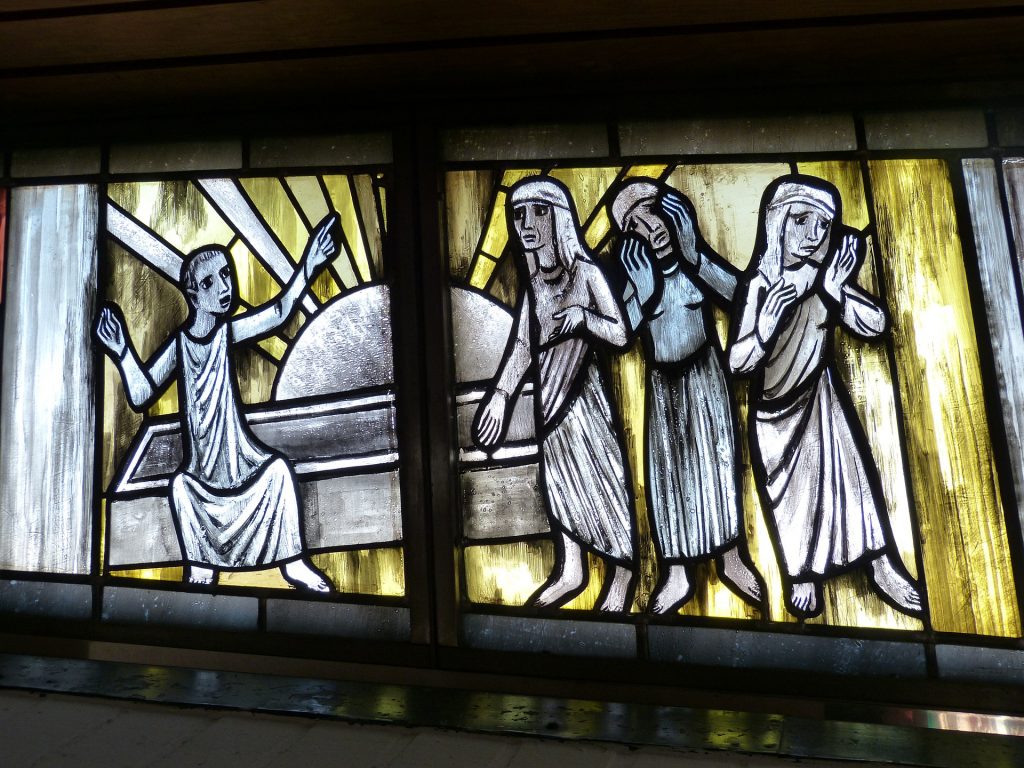The Bible and Feminism: Remapping the Field (Oxford University Press), edited by Yvonne Sherwood, Professor of Biblical Cultures and Politics in the Department of Religious Studies, was published at a moment when public attacks on women and their rights had reignited debates on feminism in the public domain.
Initial work on The Bible and Feminism began in 2013 and as production progressed it was clear that the cultural and political shifts taking place would mean that the book would be published in a time very different to the time in which it was conceived. As Professor Sherwood remarks in her introduction, ‘When I began work on this book… I had no nightmares of a man who would be elected to presidential office despite having been recorded bragging openly about “grab[bing]” women “by the pussy”… Even the darkest of prophets could not have foretold the appointment of so many North American cabinet members accused of sexual assault, or such a concerted and centralised attack on Planned Parenthood, Black Lives Matter, and queer and migrant/refugee rights.’
The changing times, though, have only made the book’s content more pertinent and thought-provoking. While prior to 2016, some thought, however erroneously, that the main battles had been won and feminist criticism was superfluous, it is now difficult to argue that that is the case.
But what do feminist biblical scholars bring to the field that is different to traditional scholarship? In her introduction, Professor Sherwood argues that feminist biblical critics have moved away from traditional biblical scholarship, where it was accepted that the task was ‘essentially, and almost exclusively, the quest for historical origins’, an acquiescence that reinforced the association between the Bible and the ‘past’. Feminist biblical critics, in contrast, have pioneered a path that promotes ‘anachronistic encounters between the Bible and contemporary socio-political issues, so betraying the traditional contract between biblical studies and the study of the past’. Professor Sherwood goes on to argue that this approach is timely as current leaders and lawmakers reach back into the Bible to selectively choose ‘soundbites’ to illustrate and justify their own world views.
In contrast, The Bible and Feminism’s approach is to interrogate the text of the Bible, offering new readings on a range of contemporary issues such as: migration and xenophobia, divorce and family law, abortion, ‘pinkwashing’, the neoliberal university, the second amendment, AIDS and sexual trafficking, and the politics of ‘the veil’. With essays written by scholars from around the world, the book challenges established canons and the stereotypes of feminist biblical studies.
For Professor Sherwood, the book has helped to ‘remap the field’. She says: ‘The most exciting thing about this project was working with a range of scholars from across the world, including Hong Kong, Argentina, and Iran. However, we had a very concrete reminder of increasingly draconian immigration politics in the US and Europe at a review panel for the book at the major religion conference in Denver in November 2018. Fatima Tofighi, who holds an Iranian passport, was not permitted entrance into the US and could only be part of the panel by Skype, but the line was fuzzy and her voice was lost. This, for me, was a very graphic example of muted voices – precisely the kind of repressions that this book tries to address’.
The Bible and Feminism has been acknowledged as a valuable addition to study in this area: ‘It offers unconventional approaches and readings of biblical stories, reflects on the past and provokes its readership to evaluate feminist history of intellectual struggle and theoretical vision. The variety of approaches, themes and views is simply breathtaking.’ Svetlana Khobnya, Journal for the Study of The New Testament.


